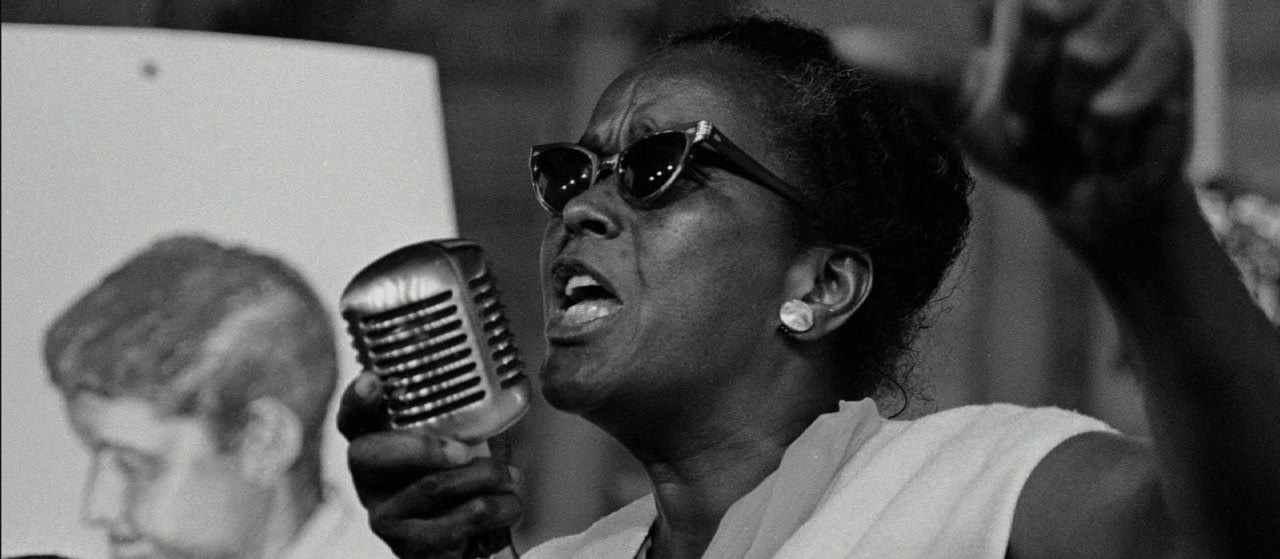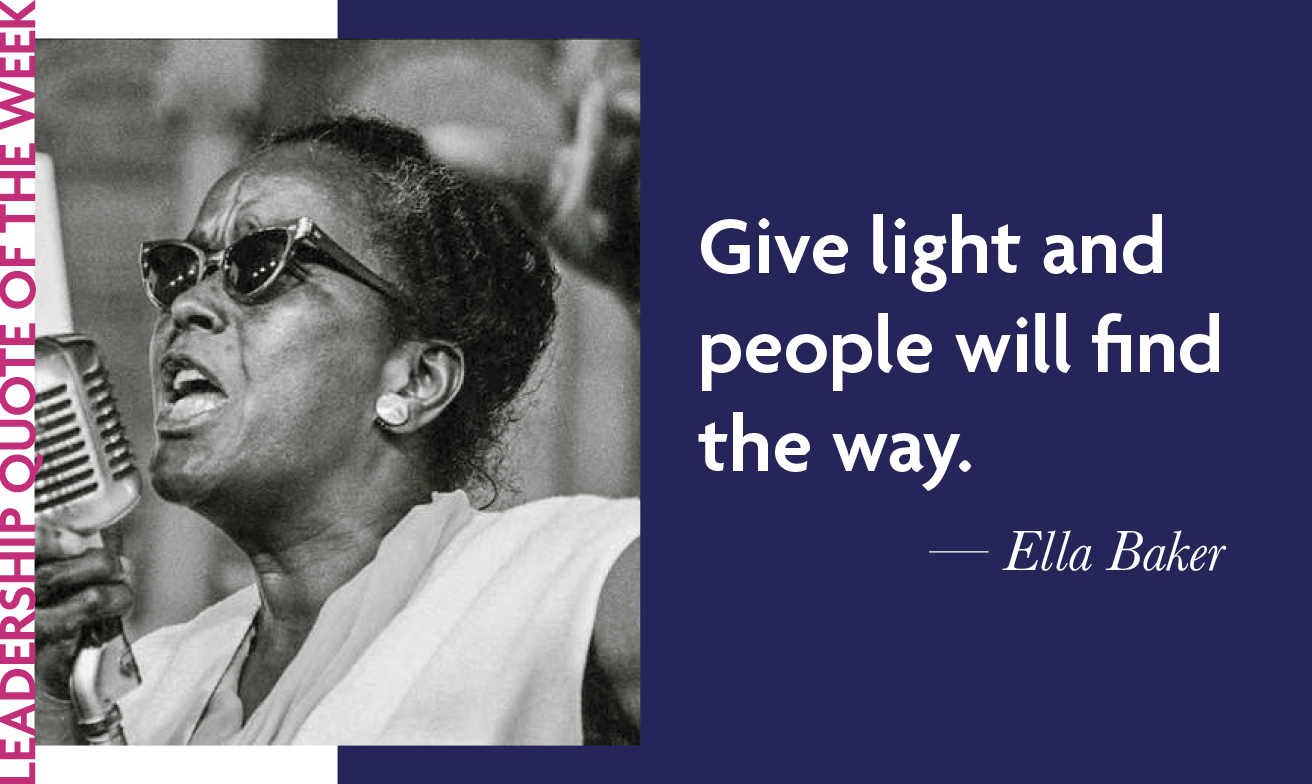Give Light and People Will Find the Way


Ella J. Baker (1903–1986) was an African-American civil rights and human rights activist. She spent her life organising, and worked with famous civil rights leaders of the time, such as Martin Luther King Jr., and W.E.B. Du Bois. Baker was also deeply involved with the most influential civil rights groups: the National Association for the Advancement of Coloured People (NAACP), MLK Southern Christian Leadership Conference (SCLC) and the Student Nonviolent Coordinating Committee (SNCC).
Although her role in the civil right movement was crucial and far-reaching, her name is not as well-known as Dr. King's. Baker spent most of her time performing the essential, behind the scenes work: traveling between houses and churches, listening to the people, inspiring them to join forces and demand to be treated with dignity. As a leader, she did not seek spotlight or recognition, but aimed to help others reach their own potential.
“Baker was a strategist, organizer and mother to the movement whose political acumen, humble leadership style and razor sharp political insights were legendary,”—writes author Barbara Ransby.
Baker challenged the era's traditional paradigm of charismatic masculine leadership based on oratory and exhibitionism. She placed emphasis on working alongside regular people, building coalitions, and doing the emotional work required to mobilise the marginalized individuals to fight for their rights.
"Ella spoke actively against top-down authority and believed the strength of an organisation grew from the bottom-up. Ella believed leadership is collective: a movement must be leader-less and leader-full in the same breath,"—Act Build Change.
Although she was a gifted leader, sexism heavily pervaded the era. SCLC pastors and other male leaders tried to preserve the patriarchal hierarchy and refused to allow her to share in their prestige. Nevertheless, Baker became esteemed in predominantly male political circles, and brought—women, students and activists—along with her.
![[CLOSED] Apply to Become an Advisory Board Member](https://images.zapnito.com/cdn-cgi/image/metadata=copyright,format=auto,quality=95,width=256,height=256,fit=scale-down/https://images.zapnito.com/users/290982/posters/b494a8a5-ced0-489b-9b26-6c4da797bedf_medium.jpeg)



Please sign in
If you are a registered user on Laidlaw Scholars Network, please sign in